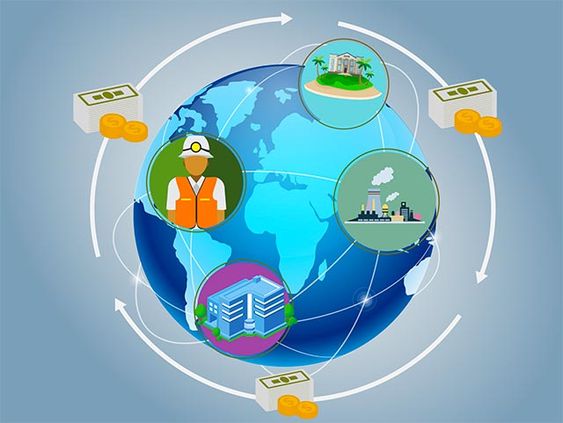Joseph Araneta Gamboa l August 14, 2024 l Business Mirror

BEIJING, China–A recent World Bank study dealt with how geoeconomics can reshape the geography of foreign direct investment (FDI) and, in turn, how FDI fragmentation can affect the global economy. The Organization for Economic Cooperation and Development describes FDI as the heart of globalization that serves as an important conduit for the transfer of capital, goods, services and information across economies.
The rise of geoeconomics in an increasingly interconnected world has brought more opportunities for greater prosperity and economic competition between countries. This is exemplified by China’s Belt and Road Initiative (BRI) as well as the “Creating Helpful Incentives to Produce Semiconductors” or CHIPS and Science Act of the United States.
The BRI was adopted in 2013 by the Chinese government under then newly-minted President Xi Jinping as a global infrastructure development strategy investing in more than 150 countries and international organizations. The CHIPS Act of 2022 signed by US President Joe Biden authorized massive funding to boost research and manufacturing of semiconductor materials and devices. Both policies are brilliant geoeconomic strategies.
There are two Beijing-based institutions that have substantial investments in the Philippines: the Asian Infrastructure Investment Bank (AIIB) and the State Grid Corp. of China (SGCC). The AIIB headquarters is in Chaoyang District, home to majority of Beijing’s foreign embassies and growing central business district. The SGCC’s head office is in the neighboring Xicheng District where, along its Beijing Financial Street, Chinese regulatory agencies and major banks are located.
The AIIB started operations in 2016 as a multilateral development bank whose mission is to finance the so-called “Infrastructure of Tomorrow” with the goal of prosperity and economic development for Asia. Since then, it has grown to 109 approved members worldwide–including non-Asian nations and multilateral organizations representing more than 80 percent of the world’s population and two-thirds of global gross domestic product.
Among its 59 founding members is the Philippines, which joined the AIIB in December 2015 when then President Benigno Aquino III approved the country’s membership upon the recommendation of the Department of Finance. It may be recalled that in 1965, another multilateral financial institution—the Asian Development Bank (ADB)—selected Manila as the site of its headquarters after beating Tokyo, Bangkok, Kuala Lumpur, Singapore, Kabul, Tehran and Phnom Penh in the bidding that was conducted during the final weeks of then President Diosdado Macapagal’s term in December 1965.
In less than a decade of existence, the AIIB has surpassed the half-century-old ADB in terms of membership. So far it has eight approved projects in the Philippines, including the $207.6-million Metro Manila flood management project, five Covid-related support programs worth $2.5 billion and the upcoming Bataan-Cavite Interlink Bridge’s first tranche amounting to $350 million.
On the other hand, the SGCC holds a 40-percent stake in the National Grid Corp. of the Philippines (NGCP), the privately-owned transmission service provider that has a congressional franchise to operate, maintain and develop the country’s power grid. The SGCC is part of the consortium that won the auction for the government-owned National Transmission Corp. in 2007. Filipino companies owned by taipans Henry Sy Jr. and Robert Coyiuto Jr. control a combined 60 percent of the NGCP, with a concession period that will end in December 2058.
Founded in 2002, the SGCC is the largest power utility in the world with more than $500 billion in total assets. It accounts for 80 percent of the entire Chinese national grid, while the remaining 20 percent is under the jurisdiction of the China Southern Power Grid Co. Aside from the NGCP, the other overseas investments of the SGCC include equity holdings in the national power grids of Portugal, Australia, Brazil, Chile and Italy.
To discuss the challenges facing the Philippines in the midst of a changing regional order, German think tank Friedrich Ebert Stiftung (FES) convened in 2021 a diverse group of policymakers, academicians, trade unionists, civil society representatives, retired diplomats and ex-military personnel. The workshop was facilitated by the National University of Singapore’s Lee Kuan Yew School of Public Policy.
“The archipelagic nation finds itself at the forefront of many key dynamics that will shape the future of the Asia-Pacific region in the 21st century,” the FES’s report, titled “The Philippines in the New Geopolitics of Asia,” said. “Its economic geography puts the country in the spotlight of the changing geoeconomics of trade, supply chains and shipping routes.”
With such a pivotal role to play over the next decades, our country’s leaders should be able to navigate between geoeconomics and geopolitics in order that the Philippines shall grow and succeed in the global market.
*** Joseph A. Gamboa is the vice-chairman of the Ethics Committee of the Financial Executives Institute of the Philippines (Finex) and the director of the Noble Asia Industrial Corp. The views expressed herein do not necessarily reflect the opinion of Finex and the BusinessMirror. #FinexPhils www.finex.org.ph. Photo from Pinterest.

